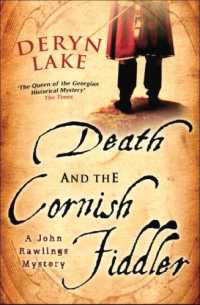One of my weak moments when I ordered some irresistible sounding titles from Daedalus....this one included. This series by Deryn Lake--the prolific author of several series of mostly historical novels-- is fifth in the "John Rawlings" series. Rawlings is a London-based apothecary in 18th C England who helps solve murders as a sort of enjoyable sideline, after earlier having been falsely accused of a murder and finding the real killer in self-defense. He is based on an actual person according to the author's notes. In this book, his wife Emilia has been dead about 18 months and he is the sole parent for his 5-year-old daughter, Rose. He is falling in love with a widowed Marchesa, Elizabeth, who is uninterested in ever being married again. They have traveled from her estate in Devon to a small town in Cornwall to watch the dance festivities associated with the coming of spring, known as the Furry or Floral Dance. While there, another young girl, Isolde, disappears and then a beautiful courtesan is found murdered. John is on the case and eventually Elizabeth and Rose grow tired of his pursuit of murderers and retreat to Devon--for a while. John and the lover of Isolde's widowed mother continue the investigation and uncover a coven of witches. When Rose is abducted, the hunt for the abductors/ killers of Isolde becomes very personal. All the mysteries are solved and Rose is restored to her father, so all comes well in the end. The author has done her homework (obvious when you look through her website) and so the settings are authentic, the events realistically portrayed and the characters are sufficiently complex--neither all good nor all bad. For those who love historical mysteries, especially English settings, this will be a satisfying read and I would happily consume another in this series. I am still somewhat partial to the Owen Archer series (also involving an apothecary) written by Candace Robb, although these are set in the 14th C., or those of Sharon Kay Penman, but these Rawlings tales are a fine addition to the tradition.

No comments:
Post a Comment